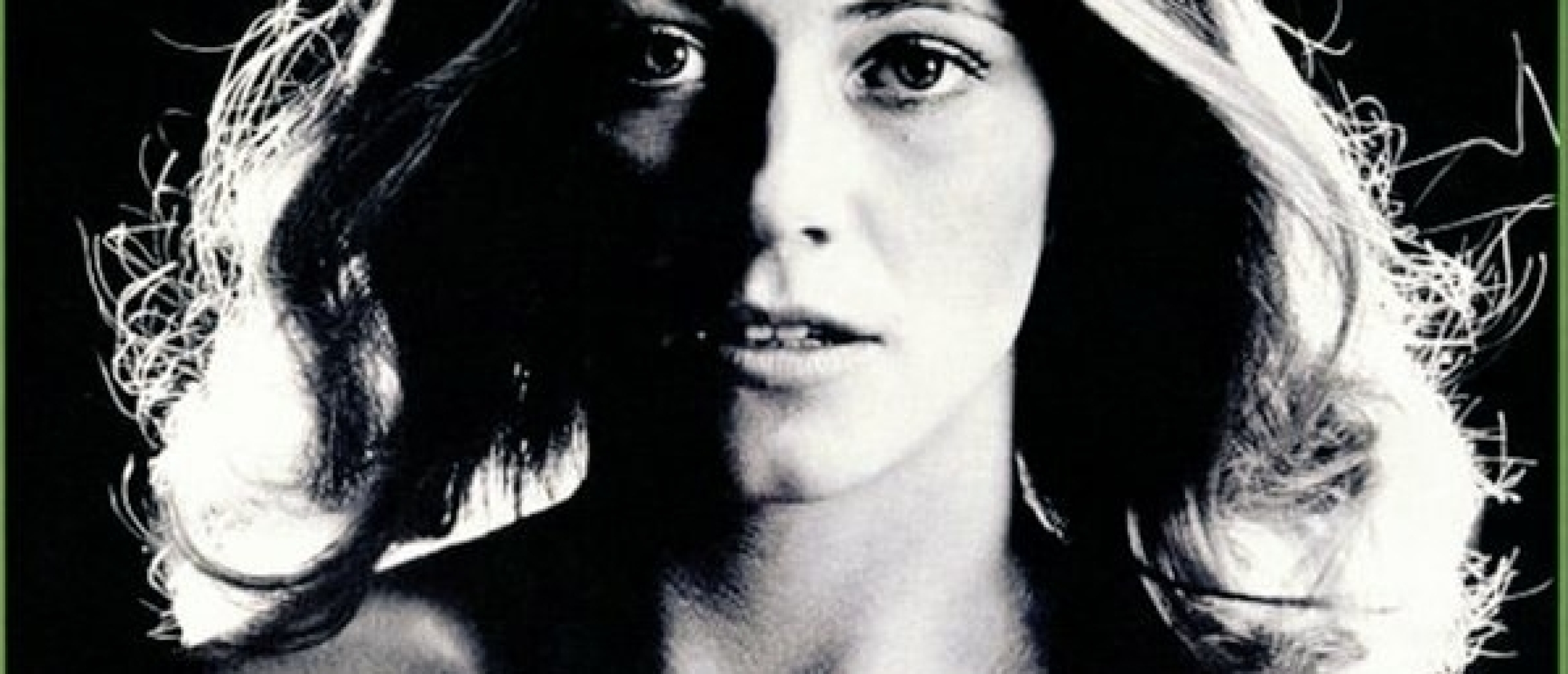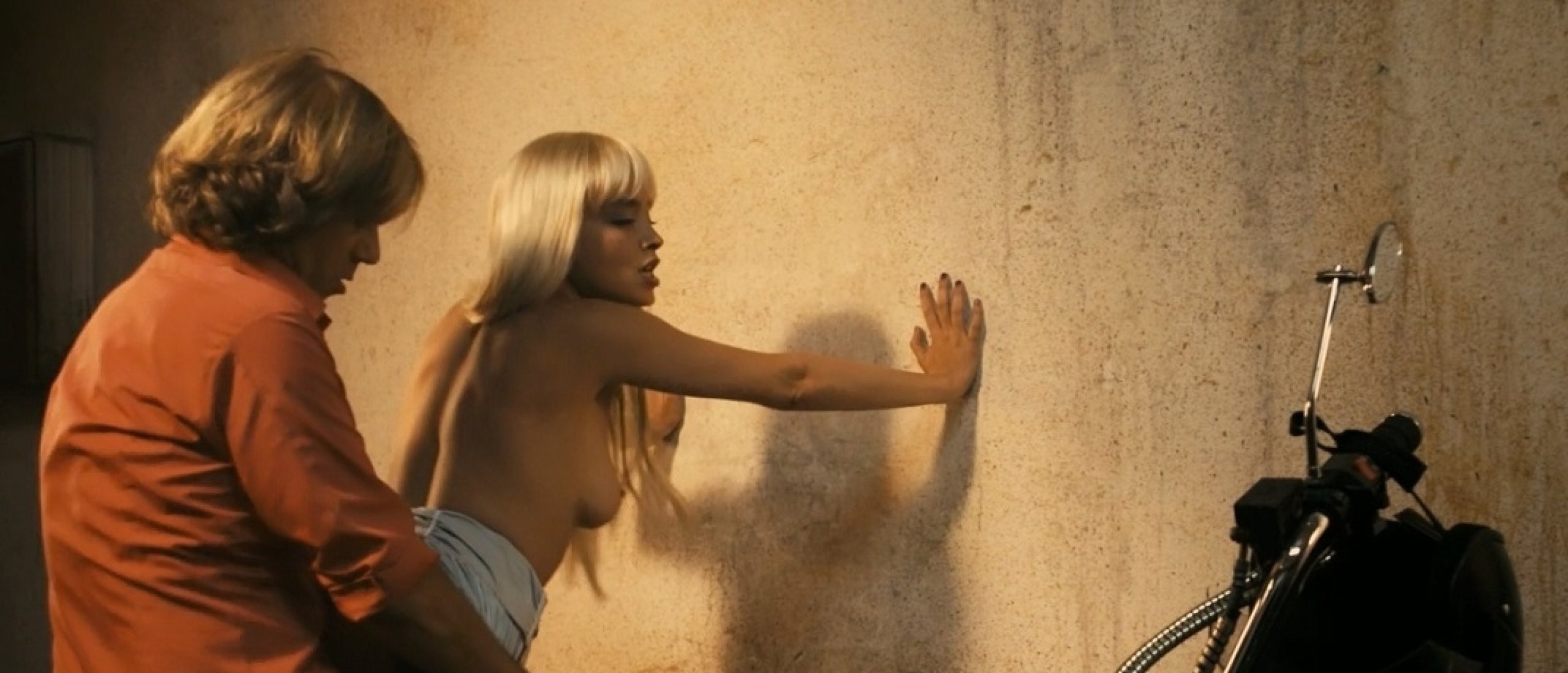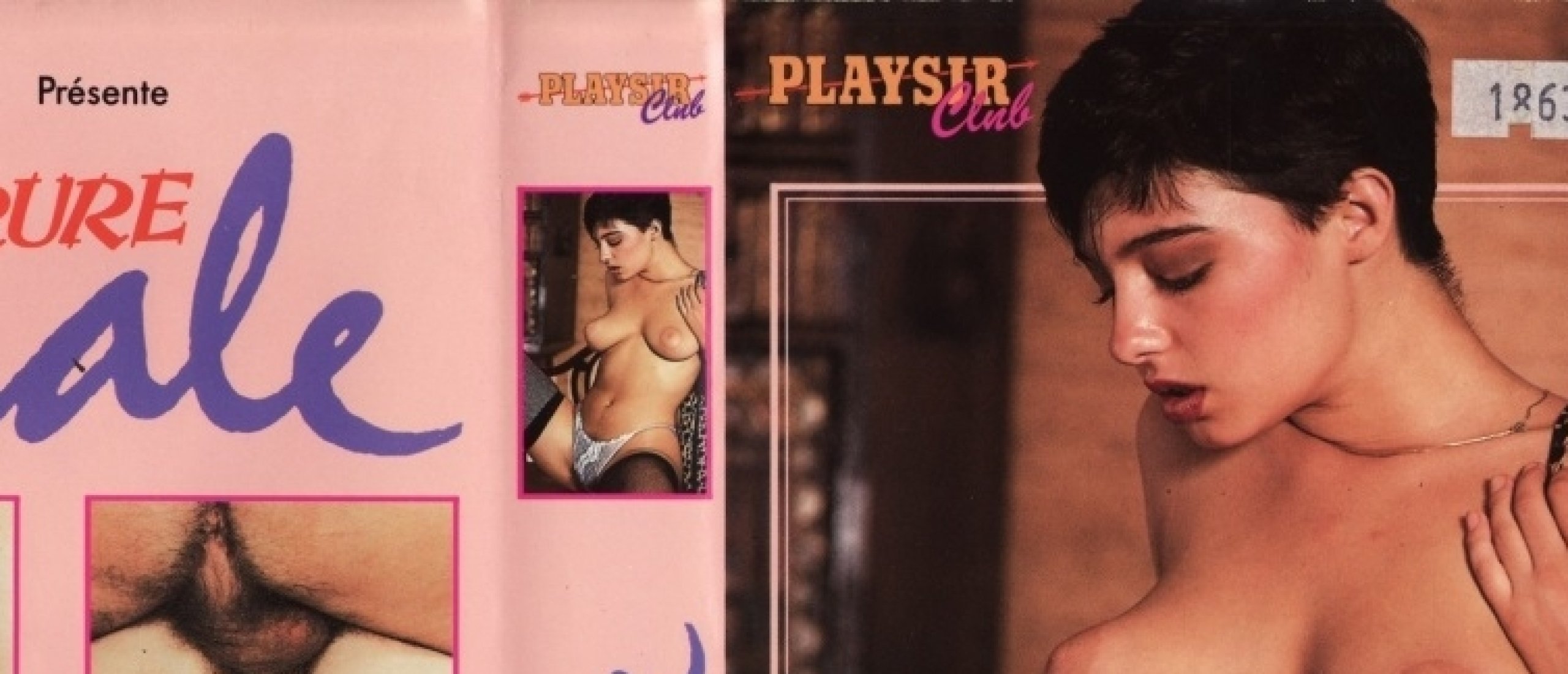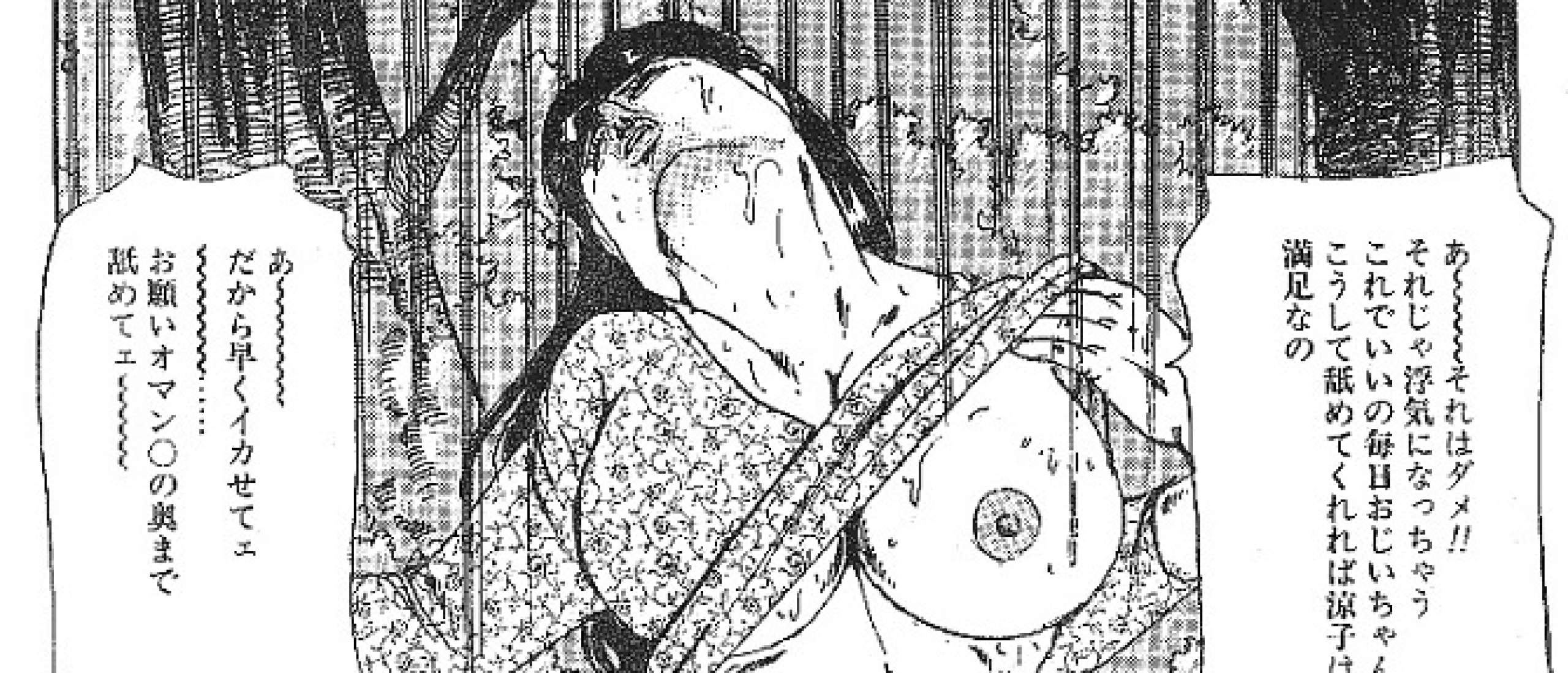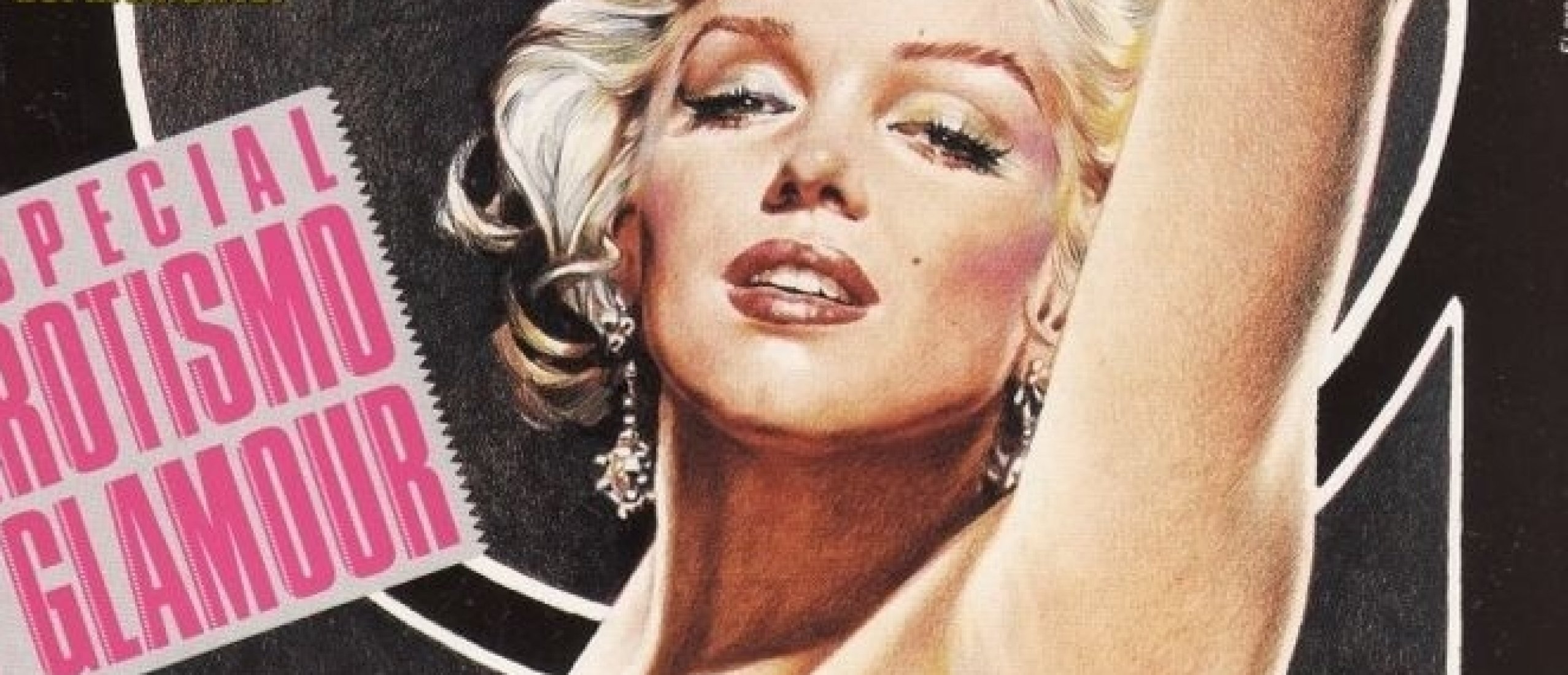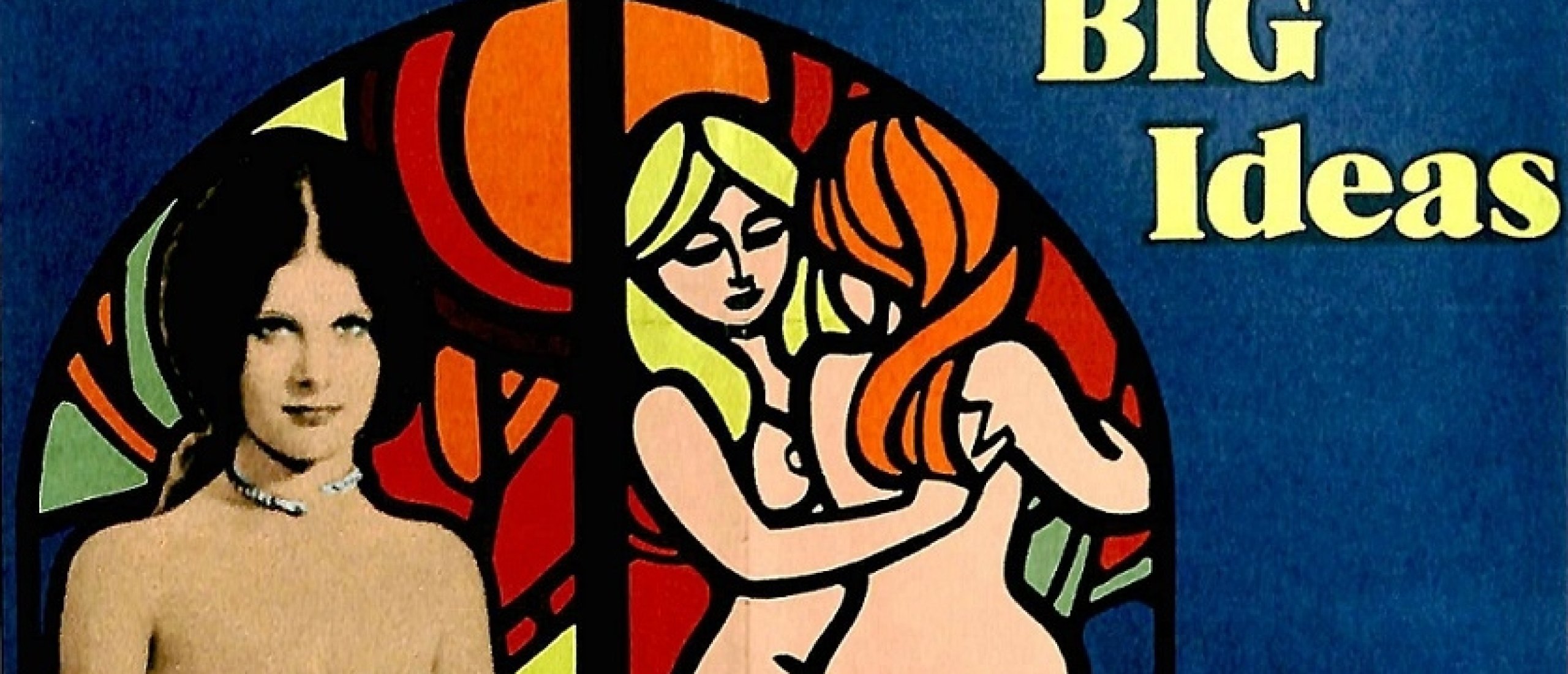
The Soul Of the Business
There's an old saying that the soul of any business is advertising, and this applies even to the adult and pornographic film industry of the 1960s and 1970s. With the repeal of obscenity laws in literature in 1967 and the abolition of censorship on pornography in 1969 in Denmark, there was a massive production of pornographic material, with sales reaching $50 million in 1969 alone in that country. As the first country in the world to legalize pornography, Denmark, becoming a significant exporter of pornographic material, led to substantial changes in other countries.
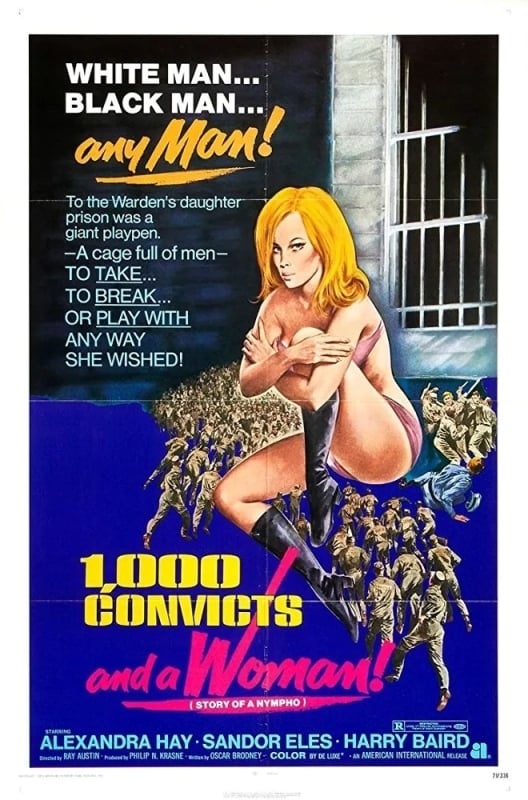
Fig..1 1,000 Convicts and a Woman (1971)
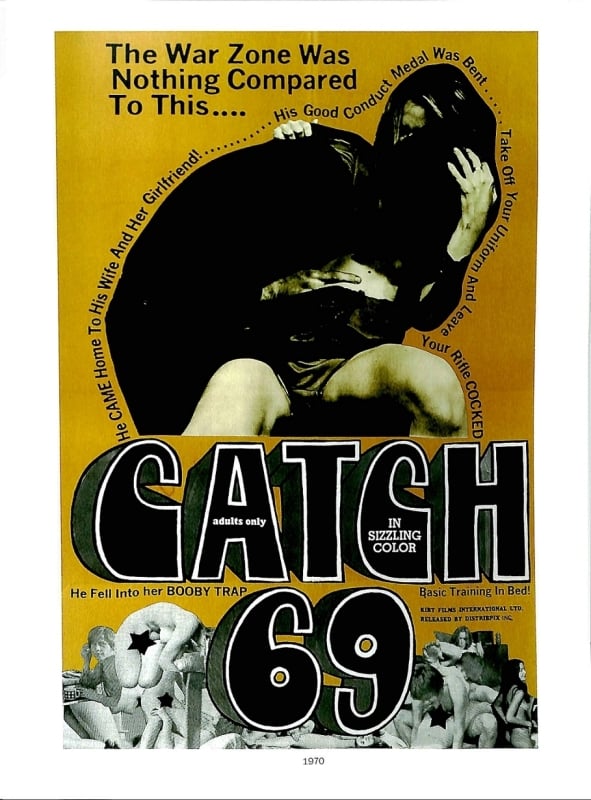
Fig.2. Catch 69 (1970)
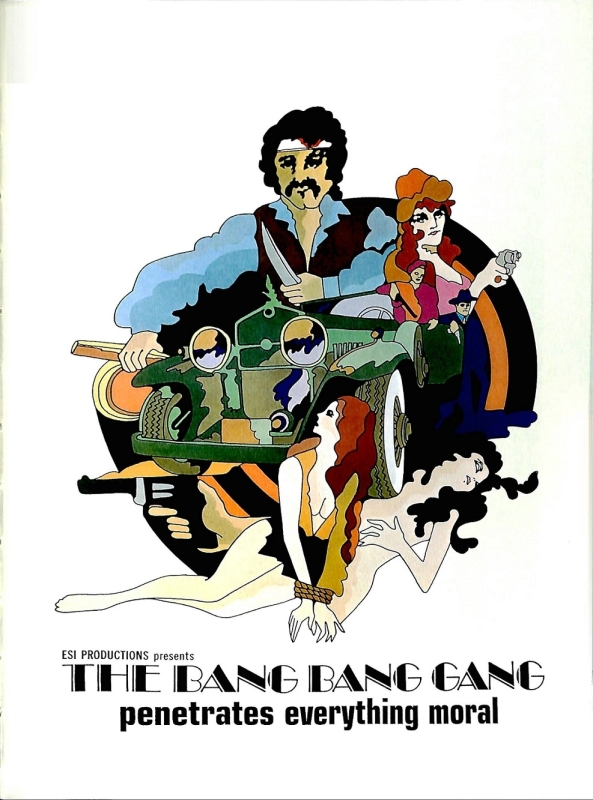
Fig.3. The Bang Bang Gang (1970)
The Golden Age Of Porn
In 1970, for example, the United States President's Commission on Obscenity and Pornography, established to study the effects of pornography, reported that there was "no evidence to date that exposure to explicit sexual materials plays a significant role in the causation of delinquent or criminal behavior among youths or adults." Sweden, which still confiscated literature considered pornographic, relaxed its obscenity laws in 1971. Throughout the 1970s, several countries adopted less stringent laws on pornography, enabling the emergence and strengthening of an industry dedicated to this type of entertainment. This led theorist Linda Williams to define the 1970s as 'the Classical Era of Theatrically Exhibited Porn', a period now called the Golden Age of Porn.
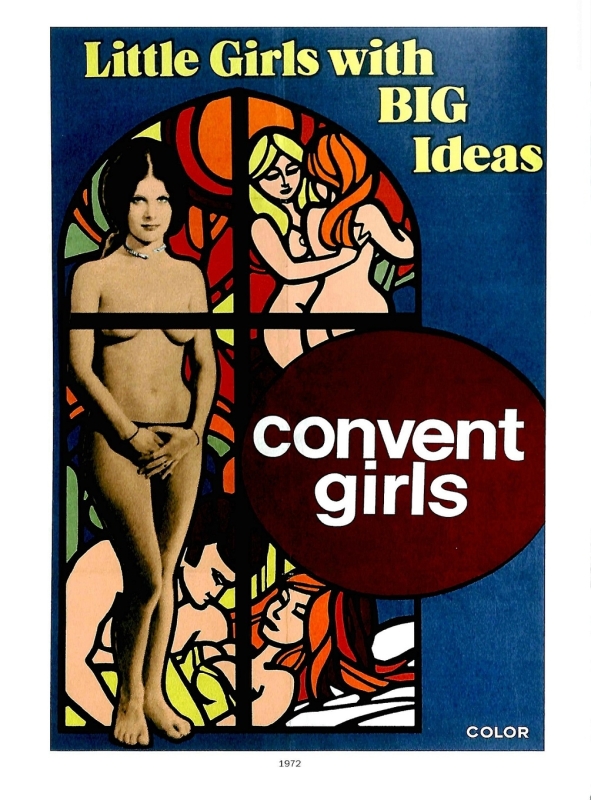
Fig.4. Convent Girls (1972)
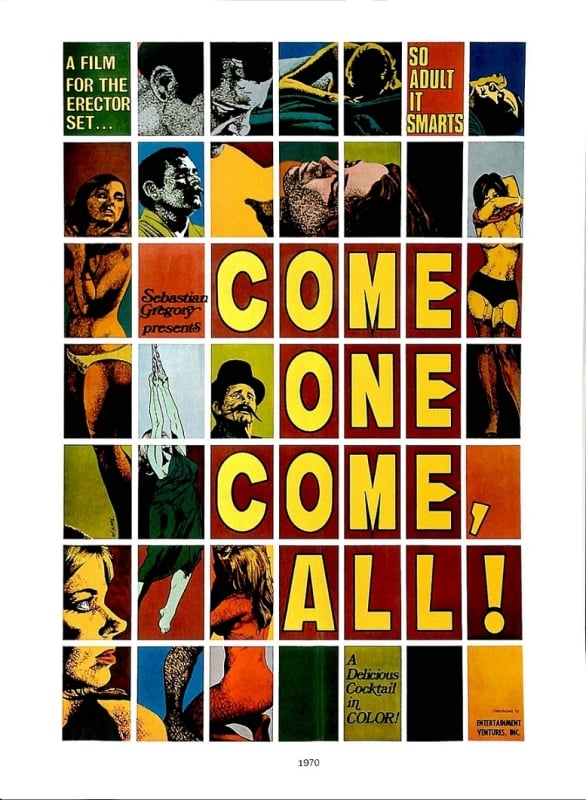
Fig.5. Come One Come, All ! (1970)
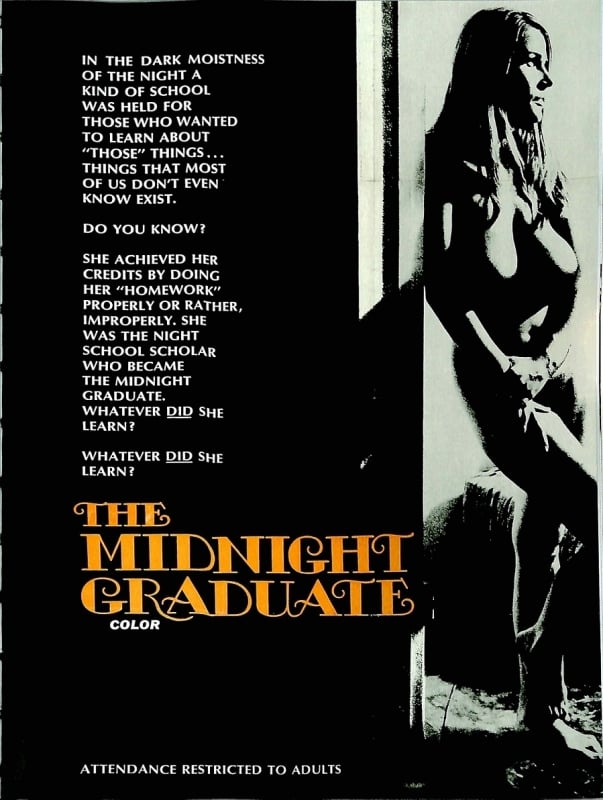
Fig.6. The Midnight Graduate (1970)
Pornographic Showcases
With the growth of the pornographic industry, the creation of posters became crucial for promoting films. These posters had to promote the content of what the audience would watch while dealing with the legal and social restrictions of the time, which meant minimal exposure of bodies, as they were displayed in showcases at the entrances of theaters, right on the street.
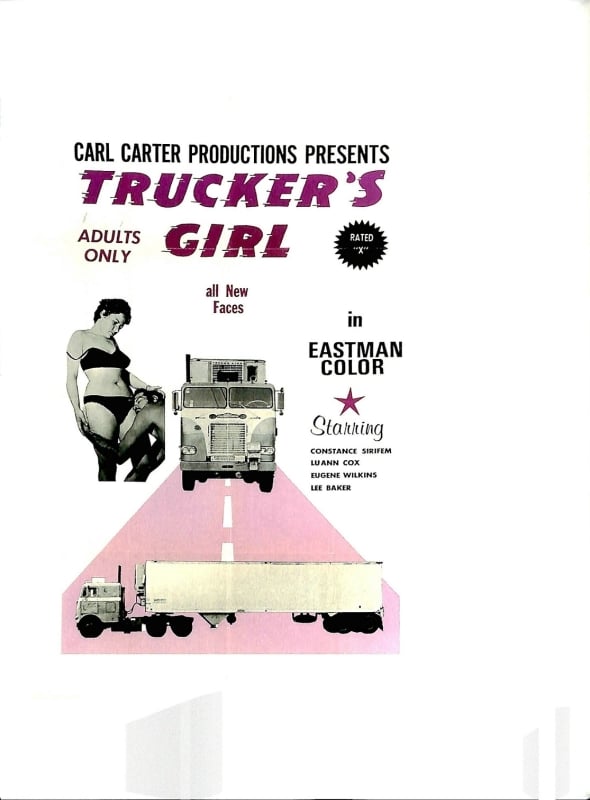
Fig.7. Trucker's Girl (1971)
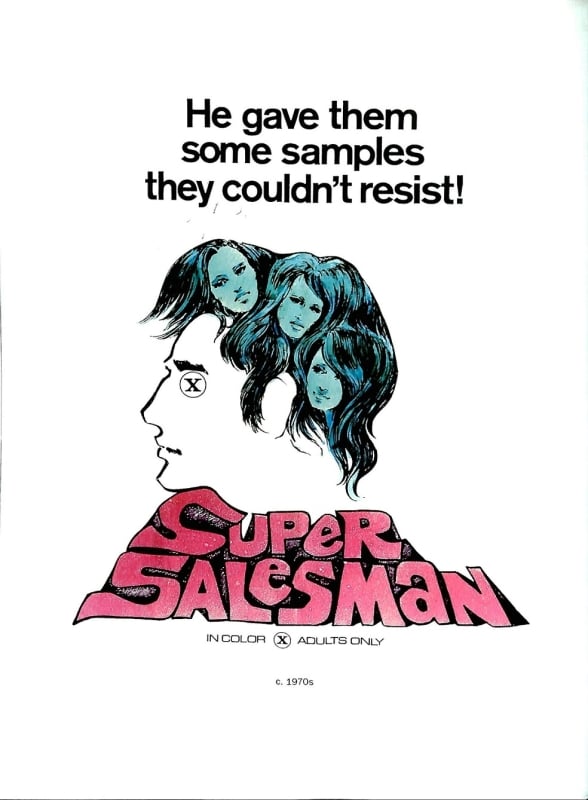
Fig.8. Super Salesman (c.1970s)
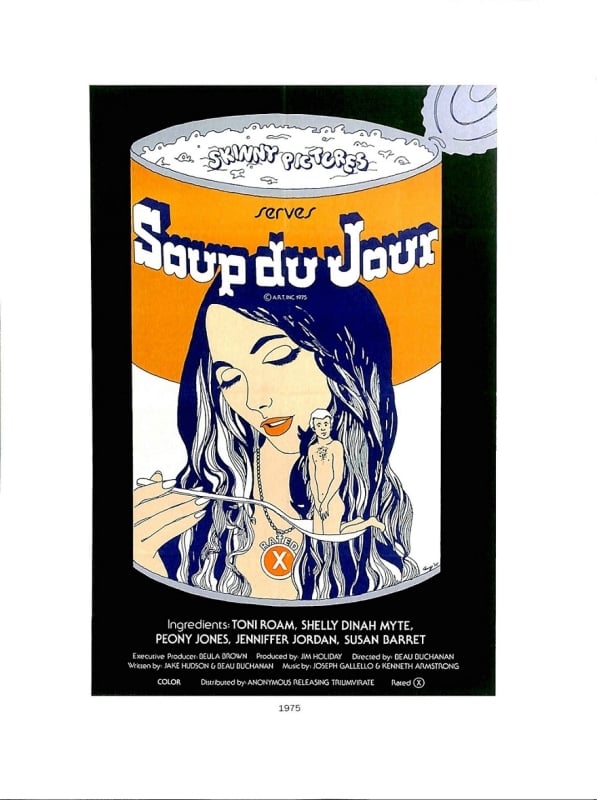
Fig.9. Soup du jour (1975)
Minimalist Sex
Many poster designers in the pornographic industry drew inspiration from posters produced for Hollywood films. Saul Bass, for instance, became a reference by aiming in his film credits, as he put it, “to reach for a simple, visual phrase that tells you what the picture is all about and evokes the essence of the story." This principle of reducing a work to its essence in graphic design was embraced by pornographic poster creators as a way to attract audiences to something that felt slightly familiar but couldn't be seen explicitly. If Saul Bass's influence can be perceived in posters for films like "The Private Dick" and "Super Salesman (Fig.8)," the pop art of Warhol and Lichtenstein served as a starting point for "Soup Du Jour (Fig.9)," "Full Time Females (Fig.10)," and "The Sex Shuffle."
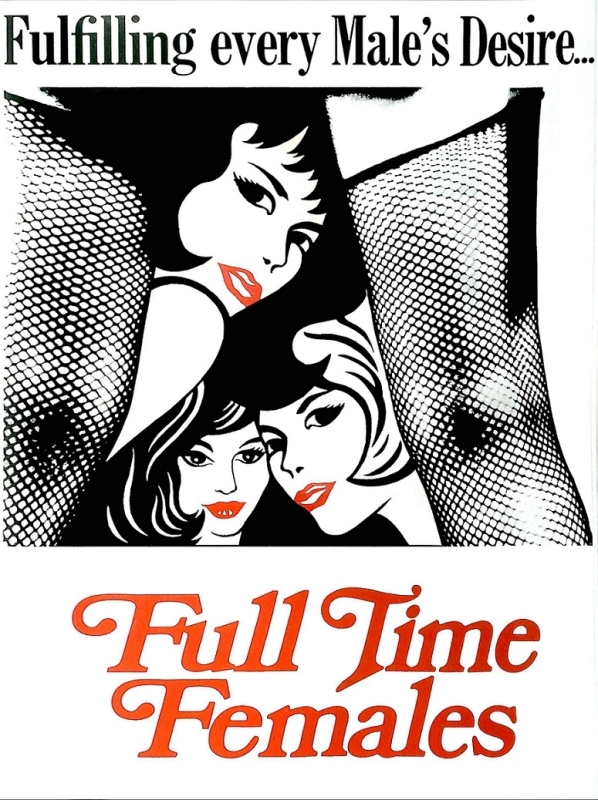
Fig.10. Full Time Females (1972)
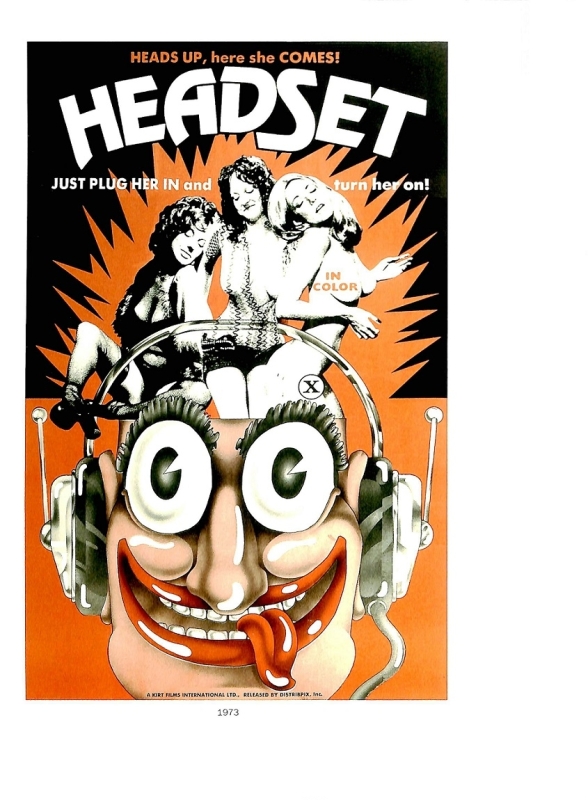
Fig.11. Headset (1973)
In Premium more on the book "X-Rated Adult Movie Posters of the 60s and 70s", the differences between sexploitation and pornographic film posters, and between productions with a higher budget and smaller productions, 80 of the most striking examples, and more...
Click HERE for the incredible adventures of Lasse Braun in the world of pornography

